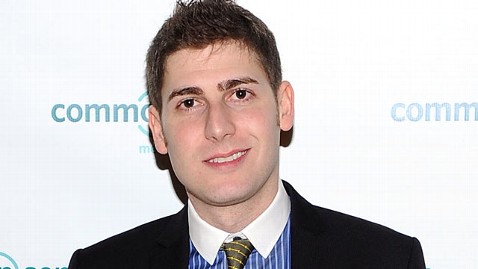Facebook's Eduardo Saverin Joins Americans Renouncing Citizenship

Eduardo Saverin. Image credit: Jason Kempin/Getty Images
In 2011, billionaire Facebook co-founder Eduardo Saverin relinquished his U.S. citizenship and joined nearly 1,800 other Americans to do it last year - up from 235 in 2008.
Saverin, 30, a Brazil-born resident of Singapore who helped launch Facebook with his Harvard schoolmate Mark Zuckerberg, reportedly renounced his U.S. citizenship in September before the company announced its planned initial public offering of stock.
Owning an estimated 4 percent of Facebook, he stands to make $4 billion when it goes public.
"Eduardo recently found it more practical to become a resident of Singapore since he plans to live there for an indefinite period of time," Tom Goodman, Saverin's spokesman, told Bloomberg News in an email.
Those in the expatriate community said that although Saverin's move was likely a financial one - he paid an exit tax on the capital gains from his Facebook stock but the stock is now tax-free - they said expatriates who gave up their citizenship were driven by other factors.
Phil Hodgen, an international tax lawyer in Pasadena, Calif., said that since 2009, when more than 150 U.S. customers of Swiss banking giant UBS were investigated for alleged tax evasion, the IRS had been going after Americans abroad with foreign bank accounts with a vengeance.
He said that in the last three years, new and old rules had created an enormous amount of resentment - and paperwork expenses - for expatriates.
"It just ended up wreaking unfairness and grief on ordinary people," Hodgen said.
Americans with a certain amount of wealth must pay an "exit tax" if they seek to renounce their citizenship. The Report of Foreign Bank and Financial Accounts, or FBAR, requires Americans abroad with at least $10,000 in foreign bank accounts to report them to the IRS or be fined.
And the Foreign Account Tax Compliance Act requires foreign banks to tell the IRS about their U.S. clients.
Peter Dunn, a popular blogger who gave up his U.S. citizenship, said the expatriates he spoke to were mostly standard middle-class U.S. citizens who were ready to retire or who had retired abroad. He said because of these "invasive" rules, they now feared substantial penalties from not reporting their finances correctly.
Born in Chicago, he moved to Canada in 1986 as a graduate student and later married a Canadian woman. He eventually settled in the Toronto region.
A researcher and blogger for the Isaac Brock Society, a website for Americans abroad, Dunn said that although he'd rather have had dual citizenship in the U.S. and Canada, he said he felt taken advantage of by the U.S., just one of two countries that taxes its citizens even when they live and work in another country. He said he also did it to protect his wife, with whom he has bank accounts.
"I didn't really make too much money until recently. Most of the wealth I have, she's given to me," he told ABC News today. "All the tax advantages I have in Canada [such as] tax-free savings accounts have become liabilities in the U.S. … There's no need for anyone in Canada to have to comply with this. It was just about getting out before it becomes more difficult."
Hodgen said that although he'd noticed more people inquiring about giving up their U.S. citizenship, very few actually pulled the trigger.
"This is an extreme step," Hodgen said. "People consider it very carefully."
Dunn said that Americans abroad were not trying to avoid paying taxes.
"We pay a lot of taxes in Canada," he said. "We do pay our fair shares. We just pay that in Canada. I don't want to be double taxed."